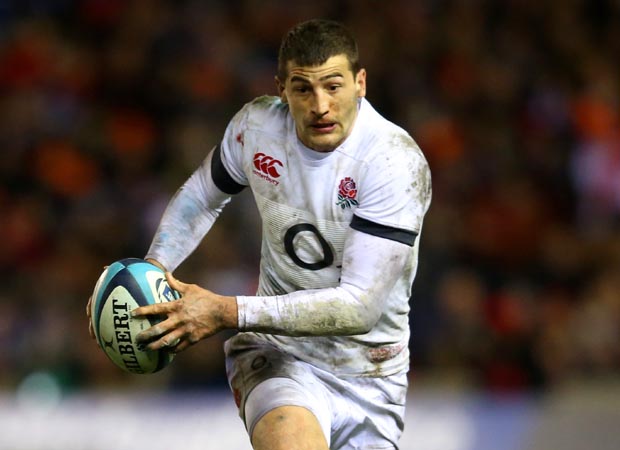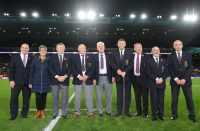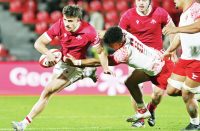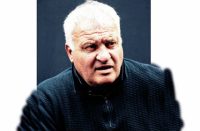 There was a time when Wales lorded it over England at Twickenham, an affluent corner of London town which they never failed to paint red and plaster all over.
There was a time when Wales lorded it over England at Twickenham, an affluent corner of London town which they never failed to paint red and plaster all over.
There was a time when it looked as though they owned the place, when their biennial visit turned out to be a triumphant inspection of a Welsh home from home in what used to be the hub of the Empire.
For those of the Dragonhood lucky enough to have been around way back then, an away win happened almost as a matter of course. Anything else came as a nasty shock or unbridled celebration depending on national allegiance.
In five visits during the Seventies, for example, Wales lost just once, in 1974, and they would probably have won that one, too had the TMO been invented in time to adjudicate on the famous JJ Williams try, or non-try as denied by John West of Dublin and as celebrated in folklore by Max Boyce’s ode to ‘Blind Irish Referees’.
How strange, therefore, to discover that Wales have not won back-to-back Championship matches at ‘HQ’ since the Grand Slam teams of 1976 and 1978. They will try again next Sunday, a title eliminator of such magnitude that the loser may struggle to finish in the top half of the table.
The winner will be in for a different struggle, albeit the more uplifting one of going for a title which will be Ireland’s provided they see off Italy in Dublin next Saturday and France the following Saturday in Paris. The Irish have won there only once in more than 40 years, during the inaugural Six Nations season in 2000 when a new centre announced himself with a hat-trick of tries.
Brian O’Driscoll, scheduled to take his final bow at the Stade de France, will not waste any time dreaming of a fairytale end to a wondrous career. In the harshly unforgiving arena of Test rugby, the final curtain is just as liable to come crashing down around his ears as it did to some extent at Twickenham last weekend.
England’s win at the end of a magnificent advertisement for the Six Nations has prompted some extravagant claims to be made on their behalf, most notably by Sir Clive Woodward. England, he predicts, are building a team capable of winning the World Cup.
Really? On the strength of a win so narrow that it might not have been a win at all had the officials not missed an illegal English hand playing the ball before it came out of the scrum late in the match?
They got away with it and deserved their win over opponents who had humiliated Wales in Dublin a fortnight earlier. England have a young team of genuine potential but are they good enough to win again next week now that Wales have rediscovered their mojo?
Austin Healey says he can ‘see England beating them convincingly’ and before anyone rushes to point the English pundit to the nearest optician he did predict that Ireland would beat Wales by ‘at least 14 points’.
It could be argued that England gained more from beating a good Irish team than Wales did from beating a very poor French one. For the second home match in a row, Wales helped themselves to the gift of an early try, the one which George North pilfered against France every bit as soft as the one a hapless Italian donated to Alex Cuthbert a fortnight earlier.
They can hardly expect such hospitality at Twickenham, no matter how much England may tempt fate with their new-fangled long walk through the West car park. The ever-present earphones will come in handy, if only to drown out the ominous sound of thundering Welsh hooves.
They will make their entrance at the gate beneath the famous Golden Lion which once stood astride the old Red Lion brewery in Lambeth before its unlikely transfer to the RFU‘s monumental citadel. Wales, armed with enough Lions of their own to rival Longleat, will doubtless see it as a symbolic gesture to their role in Australia last summer.
England have youth on their side, an average age of 25 and nobody older than 28. Wales have six over-30’s, all in the pack except for Mike Phillips. Above all, they have a physicality in midfield and on the wing which England, without the injured Manu Tuilagi, cannot match.
What England do have, ironically, is a wing in the old-fashioned Welsh mould. Jonny May has the guile and pace to lead any team a merry dance, qualities which Wales have lacked post-Shane Williams in their reliance on the brute force of North and Cuthbert.
How many of the Red Rose faction would make a composite Anglo-Welsh XV?
May, for one, but an objective analysis of both squads would surely leave the English in a minority, especially now that Billy Vunipola has been ruled out of action. And that excludes Jonathan Davies who may, or may not, be back next week for the first time in almost four months.
The best of England and Wales?
Leigh Halfpenny (W); George North (W), Luther Burrell (E), Jamie Roberts (W), Jonny May (E); Owen Farrell (E), Danny Care (E); Gethin Jenkins (W), Dylan Hartley (E), Adam Jones (W); Joe Launchbury (E), Alun-Wyn Jones (W); Danny Lydiate (W), Sam Warburton (W), Taulupe Faletau (W).























